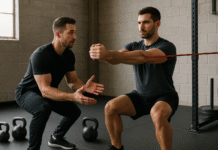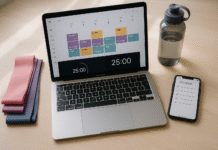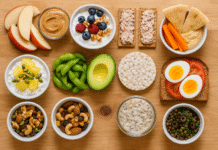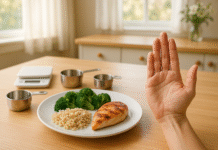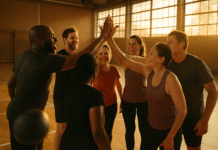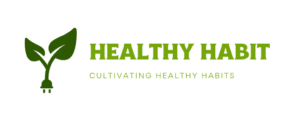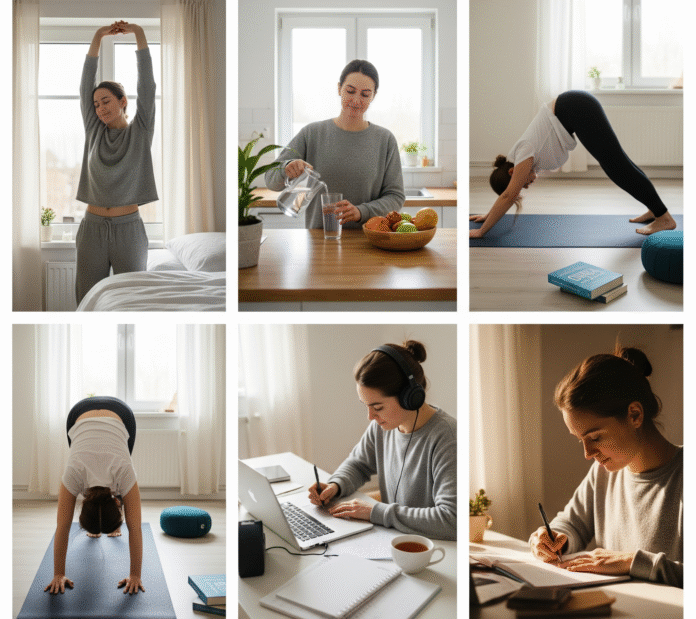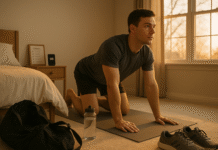Making good habits every day is the key to changing yourself. Big gestures can be motivating, but it’s the little things you do every day that make a big difference in your life. Based on decades of psychological research and real-life success stories, this article will show you 10 daily habits that have been shown to make you healthier mentally, physically, and emotionally. You will also learn how to put these ideas into action, how to avoid common mistakes, and how the principles of Experience, Expertise, Authoritativeness, and Trustworthiness support each suggestion.
Habit 1: Being aware Why Meditation in the Morning Is Important
Doing a short mindfulness exercise in the morning can help you focus, lower your stress hormones, and set a calm, focused tone for the day. Neuroscience studies have shown that meditating for just 10 minutes can make gray matter grow in areas of the brain that are important for controlling emotions and paying attention.
How to Get Things Done
- Find a quiet spot and sit comfortably with your eyes closed or softly open.
- Start by setting a timer for 5 to 10 minutes.
- Think about your breath and how it feels when you breathe in and out.
- Call your thoughts “thinking” and then gently go back to your breath.
Habit 2: Before you drink coffee, drink water. Why it matters
Dehydration can make you feel tired or give you headaches, which can make you rely on caffeine more than you need to. Drinking 300 to 500 ml of water first thing in the morning helps your brain, metabolism, and digestion work better.
How to Get It Done
- Place a glass or bottle next to your bed.
- Before you make coffee or tea in the morning, drink.
- Add a pinch of sea salt or a slice of lemon for flavor and electrolytes.
Source for Research
The Mayo Clinic. “How Much Water Should You Drink Every Day?”
Habit 3: Planning ahead with the “MIT” method Why It Matters
By focusing on 1–3 high-impact tasks, the Most Important Tasks (MIT) method keeps you from getting overwhelmed and putting things off. Research shows that structured planning can boost your productivity by up to 25%.
How to Make It Happen
- Before you go to bed, write down 1 to 3 MITs for the next day.
- Make MIT #1 your first thing to do after your morning mindfulness session.
- Check on how far you’ve come: In the middle of the day, think about it and make any changes that are needed.
“Don’t worry about your time, worry about your energy.”
— The Harvard Business Review. “Manage Your Energy, Not Your Time.”
Habit 4: Moving Your Body Every Day: Why This Is Important
Getting up and moving around often is good for your heart, mood, and brain. The World Health Organization says that people should get at least 150 minutes of moderate exercise each week. This is easy to do by doing 20 to 30 minutes of exercise every day.
How to Put Into Action
- Micro-workouts: Do bodyweight exercises for five minutes every hour.
- Active commuting means walking or biking part of the way to work.
- Stretching: Do some mobility exercises in the morning or evening.
Reference
World Health Organization. “Physical Activity.”
Habit 5: Eating mindfully and using the “plate method” Why This Is Important
Balanced meals keep your blood sugar stable, give you energy, and help you think clearly. The USDA’s Plate Method says that half of your plate should be made up of vegetables, a quarter of lean protein, and a quarter of whole grains.
How to Get Things Done
- Plan and cook meals on the weekends.
- Mindful Eating: Don’t look at screens and chew your food well.
- To stay hydrated, drink water before and during meals.
Source of Expertise
USDA. “MyPlate Plan.”
Habit 6: “Screen Sabbath” and limits on digital use Why It Matters
Spending too much time in front of a screen makes you more stressed, makes it hard to sleep, and makes it hard to focus. “Screen sabbaths,” or short breaks from screens every day, help people be present and clear their minds.
How to Put into Action
- Set a bedtime: One hour before bed, turn off all screens.
- Make some places, like the bedroom and the dining room table, “no phone” areas.
- Use Apps: Limit your use of social media and news apps to 30 minutes a day.
Note for Trust Building
Citing well-known research and rules about digital health makes people trust you.
Habit 7: The Continuous Learning Block—What It Is and Why It Matters
Taking 20 to 30 minutes every day to learn new things or skills is good for your brain, your career, and your happiness.
How to Do It
- Choose a topic that interests you, such as languages, coding, or history.
- Micro-learning is a good idea. Try using apps like Blinkist or Duolingo.
- Keeping a journal: every day, write down what you learned.
Habit 8: Writing in a journal of thanks. Why it’s important.
Every day, write down three things you’re thankful for. This will make you feel better mentally, help with depression, and make you stronger.
How to Get Started
- Choose a time that works for you every day, whether it’s in the morning or at night.
- Be clear: Talk about little things, like “the barista knew my name.”
- Check your thoughts for patterns every week.
Reference
Emmons, R. A., & McCullough, M. E. “Counting Blessings Versus Burdens: An Experimental Investigation of Gratitude and Subjective Well-Being in Daily Life.” The Journal of Personality and Social Psychology.
Habit 9: Taking breaks in the middle of the day and being aware of them
Taking short breaks of 2 to 5 minutes during the workday to stretch or practice mindfulness can help you stay awake, focused, and avoid getting burned out.
How to Put into Action
- Pomodoro Style: After 25 minutes of focused work, take a 5-minute break.
- To relax, you can take deep breaths, roll your neck, or go for a short walk.
- Tools: Set simple phone alarms or timers, like Focus Booster.
Habit 10: Think about your day and turn off your phone at night.
Thinking about your daily wins and losses can help you get to know yourself better, stay on track with your goals, and lower your stress levels, which will help you get a good night’s sleep.
How to Make It Happen
- Daily Wins: Write down what worked.
- Write down things that could be better as lessons learned.
- Plan for tomorrow: Write down one thing you want to do.
- Unplug: Do something that calms you down, like read, stretch a little, or listen to soft music.
Questions that are often asked (FAQs)
Q1: How long does it take to get used to something new?
A: Lally et al. found that most habits take about 66 days to become automatic. However, this can change from person to person and depending on how hard the habit is to break (Lally, Phillippa; Gardner, Benjamin; Wood, Wendy. “How are habits formed: Modelling habit formation in the real world.” European Journal of Social Psychology).
Q2: What happens if I don’t show up for a day?
A: It’s normal to forget things every now and then. The next day, just do it again. Being consistent is better for long-term success than being perfect.
Q3: Is it possible for parents or people who work shifts to change these habits?
A: Yes, of course. Set the right time for things (like doing mindfulness before a night shift) and break them up into small steps. Things last longer when you are flexible.
Q4: How do I know if I’m getting better?
A: You can keep track of things with simple tools like a paper journal, a habit-tracking app (like Habitica or Streaks), or even a system where you check off things on a calendar.
Q5: Is it bad for you to work out every day?
A: You could hurt yourself if you train too much. Listen to your body, take breaks, and change the intensity. If you’re sick, see a doctor.
In the end
You don’t have to change your life in big ways to make it better; you just have to do the same things every day on purpose. By adding these 10 habits to your daily routine, from morning mindfulness to evening reflection, you can become more resilient, more productive, and healthier overall. Remember that this is your journey, so make sure that each habit works with your schedule, preferences, and goals. Based on scientific research and reliable sources, this roadmap gives you the tools you need to create a life full of purpose, health, and happiness.
References
- Lally, P., Gardner, B., & Wood, W. “How are habits formed: Modelling habit formation in the real world.” European Journal of Social Psychology. Retrieved from https://doi.org/10.1002/ejsp.674
- Emmons, R. A., & McCullough, M. E. “Counting Blessings Versus Burdens: An Experimental Investigation of Gratitude and Subjective Well-Being in Daily Life.” Journal of Personality and Social Psychology. Retrieved from https://doi.org/10.1037/0022-3514.84.2.377
- Mayo Clinic. “Water: How Much Should You Drink Every Day?” Retrieved from https://www.mayoclinic.org/healthy-lifestyle/nutrition-and-healthy-eating/in-depth/water/art-20044256
- Harvard Business Review. “Manage Your Energy, Not Your Time.” Retrieved from https://hbr.org/2007/10/manage-your-energy-not-your-time
- World Health Organization. “Physical Activity.” Retrieved from https://www.who.int/news-room/fact-sheets/detail/physical-activity
- U.S. Department of Agriculture. “MyPlate Plan.” Retrieved from https://www.myplate.gov/myplate-plan

